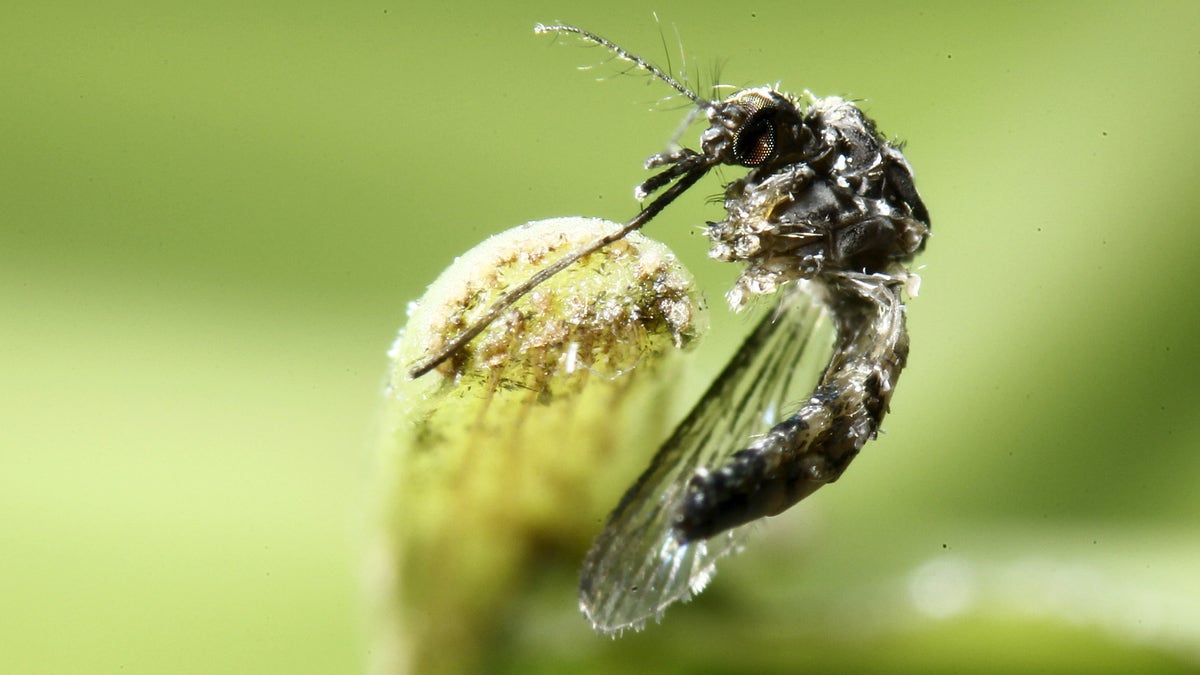
An aedes aegypti mosquito is pictured on a leaf in San Jose, Costa Rica February 1, 2016. (REUTERS/Juan Carlos Ulate)
Men from three Florida counties shouldn't donate sperm because of a small risk of spreading Zika, U.S. health officials said Monday.
The guidance had previously applied to Miami-Dade County, the only place in Florida where there's evidence the virus was spread by mosquitoes. But infections were reported in people in South Florida who couldn't clearly be linked to Miami-Dade.
On Monday, the Centers for Disease Control and Prevention said the advice should extend to two counties north of Miami — Broward and Palm Beach. The recommendation applies to men who lived or traveled in those counties since June 15.
Zika is mainly spread by mosquito bites but it can also be spread through sex. People can be infected without getting sick, and the virus can remain in semen for months.
There is no evidence of a pregnant women being infected by Zika through a sperm donation, and such a risk is considered low, CDC officials said. Infection during pregnancy can lead to severe brain-related birth defects
The Food and Drug Administration regulates sperm donations, and previously advised sperm banks they shouldn't accept donors if they had been diagnosed with Zika or had been to an area with widespread Zika within the past six months. Sperm banks should consider the CDC's new advice discouraging donations from men in the three counties, an FDA spokeswoman said.
There are 12 sperm donor banks in the three south Florida counties, CDC officials said. While blood donations can be tested for Zika, there's not a good test for semen, according to the FDA.
The last case of mosquito transmission of Zika in Florida was in December. But officials think it's possible the bugs will start spreading it again this summer. Some 221 people got Zika from mosquitoes in the continental U.S. last year, most in the Miami area. There were six cases in Texas.
There's no evidence that mosquitoes in Broward or Palm Beach were spreading it, said Dr. Denise Jamieson, who is leading CDC's Zika emergency efforts. She said officials suspect the local infections occurred in Miami-Dade.
"A lot of times people may not realize when they crossed the county line," she said.
Since a large outbreak in Brazil, would-be moms and their sex partners have been told to avoid travel to Zika areas, use condoms or abstain from sex.
